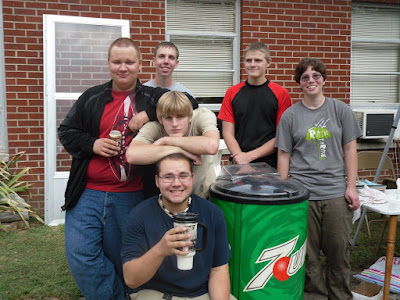I get really angry when I think about the way so much literature is designed to attract teens by enabling them to wallow in depression and addiction. There has been a lot of controversy in the church over literature in the fantasy category (i.e., Harry Potter or Twilight) targeting young people. I will not rehash this discussion, though I have read all of these books in order to have an educated opinion when parents ask me about them. I found them all highly entertaining and well-written, though many aspects of the books were inappropriate for younger readers. Fantasy in itself, of course, brings a unique problem to criticism since it is presented as entirely fictional while still communicating messages about truth and life. Then there are the specific issues regarding dark themes that run in both of these book series along with the question of--at what point can readers distinguish truth from reality, real witchcraft versus the re-creation of "witchcraft" in Harry Potter, etc.? All of that aside, I think there is a much more fatal type of literature being geared toward our students than either of these that has managed to keep below the church's radar.
I am thinking of a type of literature which is really popular now, one that deals with teenagers facing "real life" situations. One of these books has been on the best seller list lately, called Thirteen Reasons Why. I actually first heard of the book from a fellow youth worker who read it after a student recommended it to him. He said it had opened his eyes to what teenagers face in life. I bought the book, curious to see what it was advocating. I was thoroughly disturbed. The book's basic plot can be grabbed from its back cover: a teenage girl has committed suicide, but before her death, she recorded tapes directed at thirteen different people who in some way contributed toward her decision to end her own life. She then started the chain of mailing these tapes to the first person, and each of the thirteen are blackmailed into listening to the tapes and passing them on to the next person. As I read the book, I kept looking for redemptive value, for a point. I never found either. The book takes the reader through the hellish experiences of this young girl in excruciating detail, even in regard to her sexual molestation. The journey is sickening and cause for inappropriate thought patterns. It is just depressing. The conclusion of the book is hardly redemptive--only a couple pages of the message, "Be nice to people so they don't kill themselves because of you."
If you are a parent reading this, I would encourage you to censor this book out of your child's reading list for the following reasons:
- It's graphic descriptions of sexual events can be scarring and steal innocence.
- It affirms the lie that many teenagers buy into leading to suicide--that no one is really there for them in the way they need them to be.
- It may place an incredible amount of false guilt on any teenager who has lost a friend to suicide. As someone who has experienced such loss, there is enough false guilt that comes from this situation without increasing it with this book.
- The "point" of the book, which is to discourage bullying and carelessness toward others, is hardly emphasized to the point of being edifying. The girl who commits suicide is cleared of any responsibility for her actions and a blame-placing philosophy is encouraged.
- The author of the book, Jay Asher, does not have a history in counseling or youth work that I can find. He is a writer who has found a topic that is "compelling" to young people--a highly sexualized story of ostracism and the desire to end your life. I am leery of someone without a background in youth work dealing with these topics.
I feel like this teenager is saying out loud what we should all be thinking: "The emperor has no clothes!" I realize that we need to provide young people with literature that engages them, but as someone on the front lines of trying to bring hope to teens who feel lost and depressed, I am concerned about the kind of literature we are putting in their hands. We need to take responsibility for offering young people stories that will address the reality of their situation, including the negative things they might face, but that also provide hope for overcoming and dealing with those negative influences in healthy ways. The future of our society depends on their well-being.
Anyone who knows me knows that I am not the "censoring" type when it comes to books. I want to engage in educated conversations with kids about what they are reading, helping them to learn how to think critically. Still, I think we, as adults who influence students, whether as writers, teachers, youth pastors, whoever--should be taking our responsibility seriously to point students toward LIFE and not death. Maybe that means more of us should start writing, offering alternatives to teens. Maybe it means we pay more attention to what they are reading, read along with them, and help point out dangerous messages that are being communicated. Maybe it means saying, "Hey, let's find a different book." At least let us start thinking through this issue.




